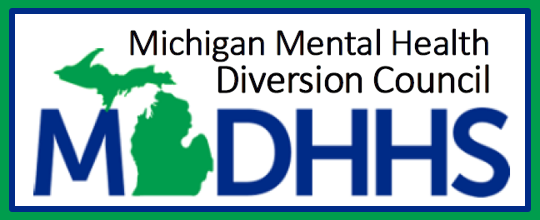How do I start the AOT process?
Once you have confirmed that AOT is an appropriate intervention for your situation, you can file a petition for treatment. Petitions for mental health treatment are filed in your local probate court, and mental health treatment is coordinated by your local community mental health (CMH) agency. AOT processes and programs can vary from county to county, so it is a good idea to connect with your local CMH and your local probate court to familiarize yourself with how AOT petitions are filed and orders are carried out in your local community.
Filing the petition
Petitions for mental health treatment are filed in your county probate court, the court that handles wills, administers estates and trusts, appoints guardians and conservators, and orders treatment for mentally ill and developmentally disabled persons.
When completing court documents, it is important to fill out the forms as completely and correctly as possible.
- Locate your county's probate court
Petitions for mental health treatment are filed in your county probate court, the court that handles wills, administers estates and trusts, appoints guardians and conservators, and orders treatment for mentally ill and developmentally disabled persons.
Your local probate court may require specific forms or cover sheets. Locate your local probate court through the Michigan Trial Court Directory below or by searching online. Then, contact them or visit their website to learn about the filing process in your area, their procedure for rejecting incomplete forms, and for support in filing.
- Locate your community mental health agency
Common forms/petitions used in mental health probate proceedings
In addition to forms required by your local probate court, the State Court Administrative Office (SCAO) requires paperwork based on where you are in the AOT process (initial petition, request for extension, etc.) Visit the SCAO website to learn more about all mental health forms.
- MC 97: Protecting Personal Identifying Information
- PCM 201: Petition for mental health treatment
Form PCM 201 is used to request assisted outpatient treatment without hospitalization, hospitalization only, or a combination of both. It also includes the transport order request.
- PCM 218: Petition for Second Mental Health Treatment
Form PCM 218 is used to request continuing treatment for an individual whose continuing Mental Health Order is set to expire.
- PCM 218a: Petition for Continuing Treatment
Form PCM 218a requests continuing treatment for an individual whose first Mental Health Order is set to expire.
- PCM 220: Petition for Discharge from Continuing Treatment
Form PCM 220 is used to have Mental Health Order for Continuing Treatment discharged when an individual no longer needs an order for mental health treatment.
- PCM 209a: Order for examination/transport
Form PCM 209a is is filled out and used by the court when an individual either needs to go to a screening site for evaluation and won't go voluntarily, or when a person is not adhering to their order and are decompensating.
- PCM 216: Order and Report on Alternative Mental Health Treatment
Form PCM 216 is a report on the treatment options open and available in the community to inform the court order.
- PCM 235: Request to defer hearing on commitment
Form PCM 235 is a request to defer a hearing on commitment.
The AOT process
This interactive process map is intended to show different routes for obtaining an AOT order, including deferral, waiver, and hearing. Use the - and + buttons in the bottom corner to zoom in and out, and use your mouse to navigate the process map.
